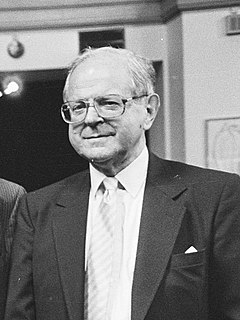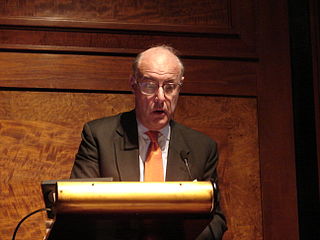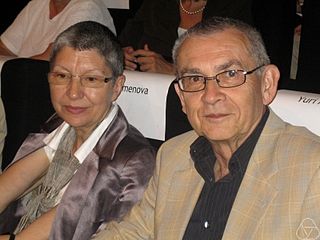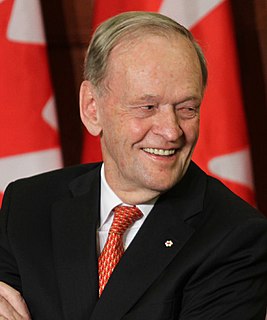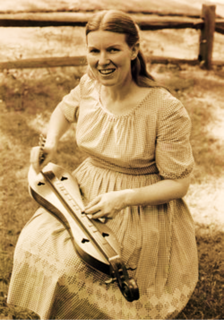A Quote by G. Edward Griffin
There is no such thing as absolute proof. There is only evidence.
Related Quotes
David Irving has consistenly applied an evidential double standard, demanding absolute documentary proof to convict the Germans (as when he sought to show that Hitler was not responsible for the Holocaust), while relying on circumstantial evidence to condemn the British (as in his account of the Allied bombing of Dresden).
Well, did he do it?" She always asked the irrelevant question. It didn't matter in terms of the strategy of the case whether the defendant "did it" or not. What mattered was the evidence against him -- the proof -- and if and how it could be neutralized. My job was to bury the proof, to color the proof a shade of gray. Gray was the color of reasonable doubt.
Absolute knowledge is only possible when you know the Absolute Truth and to have the Absolute Truth you have to go to the Absolute Being within you which is your Spirit. So, it gives you the truth, it gives you the collective consciousness. The main thing is that you become extremely peaceful personality, you become peace, you emit peace.
There exists a mountain of circumstantial evidence that consciousness survives bodily death. This is the kind of evidence that would stand up in a court of law. Some people believe that science needs better tools to quantify what consciousness is. Perhaps when we discover what consciousness is we will be on the road to providing absolute scientific evidence that there is life after death.




